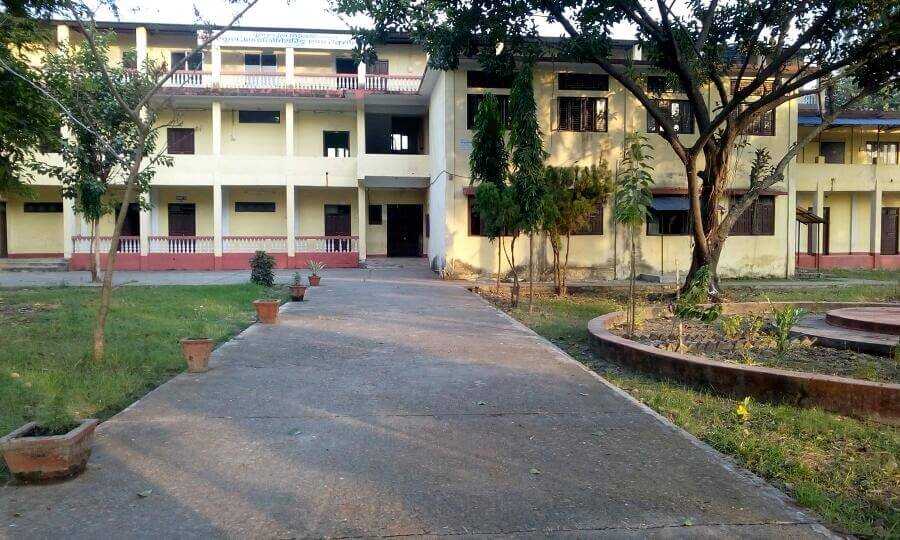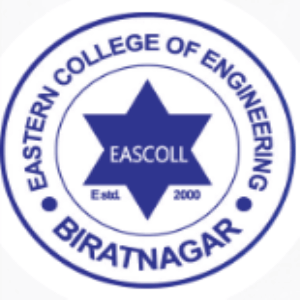Overview
MSc in Electrical Power Engineering at PUSOE
The Master of Science (MSc) program in Electrical Power Engineering at Purbanchal University School of Engineering (PUSOE), Biratnagar, Nepal, is a postgraduate course for engineering professionals seeking specialized knowledge and expertise in power systems.
This program, affiliated with Purbanchal University (PU), offers a deep understanding of electrical power systems, renewable energy, and energy efficiency. It is intended for individuals who want to advance their careers in the energy sector.
The curriculum combines advanced theoretical understanding with practical skills and prepares students for various roles in power engineering. This master' s-level program offers an in-depth study of electrical power and focuses on developing future industry leaders.

Curriculum Details
The MSc in Electrical Power Engineering curriculum at PUSOE is structured to provide a strong base in power engineering principles while allowing for some specialization through electives.
The program integrated the theoretical and practical aspects of power systems, focusing on current trends and challenges in the energy sector. It is divided into core courses, specialized courses, and electives, offering a well-rounded educational experience.
Core Courses
These courses are meant to provide a basic understanding of power engineering principles. Core courses include topics such as:
-
Advanced Power System Analysis: This examines the complex analysis of power systems, including load flow studies, fault analysis, and stability analysis.
-
Power System Protection: This topic covers the concepts and applications of protective relays, circuit breakers, and other devices to ensure power systems work safely and effectively.
-
High Voltage Engineering: This course studies high-voltage phenomena, insulation coordination, and testing techniques used in power systems.
-
Electrical Machines: This includes the detailed study of various electrical machines, including their operational principles, control mechanisms, and application in power systems.
-
Power Electronics: This course reviews various power electronic devices and converters and their applications in modern power systems.
Specializations and Electives
Students can select electives that permit them to specialize in specific areas of electrical power engineering. Some of the specializations and electives offered are:
-
Renewable Energy Systems: This focus explores the use of solar, wind, and other renewable resources for power generation and integration into power grids.
-
Smart Grid Technologies: The course covers the basics of smart grids, communication systems, and advanced control techniques used, which are the efficiency and dependability of power systems.
-
Energy Management and Auditing: This course explores improving energy efficiency and reducing consumption in industrial, commercial, and residential settings.
-
Power System Operation and Control: Students learn techniques for efficient and dependable operation and control of complex power systems.
-
Advanced Electrical Drives: This specialization studies the design, operation, and control of high-performance electrical drives in industrial applications.
-
Power System Reliability: The course focuses on assessing and improving the reliability and security of power system operations.
Objectives
The main aims of the MSc in Electrical Power Engineering program are:
-
To allow a thorough understanding of the principles and practices of modern electrical power systems.
-
To prepare graduates to examine and solve complex problems in power system operation, control, and protection.
-
To develop expertise using modern power system analysis, control, and automation technologies.
-
To design professionals who can contribute to the planning, designing, and operating sustainable and dependable power infrastructure.
-
To motivate research and development activities in the area of electrical power engineering.
Scope
The scope of this program is broad and covers many areas within the electrical power engineering sector. Graduates of the program can work in:
-
Power generation, transmission, and distribution companies.
-
Renewable energy firms, including solar, wind, and hydro.
-
Consulting firms specializing in power system planning and analysis.
-
Research and development organizations.
-
Government agencies involved in power infrastructure.
-
Educational institutions in teaching and research.
-
Industries focused on electrical machines, drives, and power electronics.
Learning Outcomes
Upon completion of the MSc in Electrical Power Engineering program, students should be able to:
-
Analyze, simulate, and optimize complex power systems.
-
Design and implement protection schemes for power system components.
-
Evaluate and integrate renewable energy sources into power grids.
-
Manage energy efficiently and conduct energy audits.
-
Apply advanced control techniques to enhance power system performance.
-
Carry out research in different areas of electrical power engineering.
-
Communicate technical information clearly and effectively.
Skill Development Modules
The program contains various skill development modules that help students develop technical and soft skills. These modules include:
-
Simulation Software: Students learn to use, analyze, and simulate power systems using software such as ETAP and PowerWorld to adware Labs: Hands-on sessions are given on various electrical power equipment, including transformers, generators, and protection devices.
-
Research Methodology: Students learn to conduct research, write reports, and communicate findings.
-
Project Management: Students learn to plan, execute, and handle engineering projects in a team setting.
-
Technical Writing and Presentation: Students gain the ability to present findings effectively.
Teaching Methodology
The teaching methodology at PUSOE combines several approaches to ensure that students benefit most from the program. Teaching methods include:
-
Lectures: Formal lectures by qualified faculty members to present key concepts and theories.
-
Tutorials: Regular tutorial sessions for problem-solving and addressing student doubts.
-
Lab Sessions: Hands-on sessions in labs with various equipment and experiments.
-
Project Work: Individual and group projects to apply learned concepts and improve practical skills.
-
Seminars: Regular seminars by industry experts and researchers to discuss current developments in the field.
-
Case Studies: Analysis of real-world situations and application of concepts.
-
Research Activities: Students participate in research activities promoting critical thinking and innovation.
Faculty Expertise
The faculty members at PUSOE are experts in various areas of electrical power engineering. They bring years of academic and industrial experience to the classroom. They are involved in research and publication, enhancing their teaching abilities. The faculty comprises experienced professors and assistant professors with advanced degrees from recognized universities, guaranteeing students access to well-informed teaching and supervision. The faculty members are also known for their commitment to student success and for providing personalized attention.
Admission Requirements
To be eligible for the MSc in Electrical Power Engineering program at PUSOE, applicants should:
-
Hold a Bachelor's in Electrical Engineering or a related field from a recognized university.
-
Have an acceptable academic record, usually meeting a minimum Cumulative Grade Point Average (CGPA) Score or equivalent score.
-
Pass an entrance examination and get an interview if required by the university.
-
Provide a completed application form, official transcripts, and other documentation specified by the university.
Career Opportunities
Graduates of the MSc in Electrical Power Engineering program have many career choices. The skills and knowledge they gain from this program will make them qualified for jobs in different areas of the energy sector. Some potential jobs include:
-
Power System Engineer
-
Renewable Energy Engineer
-
Energy Management Consultant
-
Protection Engineer
-
Research and Development Engineer
-
Power System Analyst
-
Electrical Design Engineer
-
Project Manager
-
University Faculty Member
Student Life and Extracurricular Activities
Student life at PUSOE goes beyond academics. The college promotes student participation in extracurricular activities and creates a balanced personal and professional growth environment.
Graduates are encouraged to participate in sports, cultural programs, and technical clubs, which promote community and teamwork and help them develop their talents and interests.
Scholarships and Financial Aid
PUSOE provides various scholarships and financial assistance to qualified students. These programs are designed to encourage students from different backgrounds to pursue higher education. The university's website has information about available scholarships, eligibility requirements, and application procedures. These programs can help students reduce their educational burden.
Why Choose This Course?
The MSc in Electrical Power Engineering program at PUSOE offers a unique learning opportunity through its focus on advanced topics and real-world training. The program's curriculum provides students with a strong knowledge base and practical skills, preparing them to succeed in power engineering. The university's location also offers students strong access to practical experiences within the local infrastructure. Students who want to advance their knowledge in power engineering will find this program beneficial.
Why Choose This College?
PUSOE provides a conducive learning environment, modern facilities, and a committed faculty. Students at PUSOE will have access to all the resources they require to learn and succeed in engineering. The college's focus on research and innovation also provides a good platform for those who want to improve their academic knowledge. Also, PUSOE has a reputation for providing quality education and developing skilled professionals.
Conclusion
The MSc in Electrical Power Engineering program at PUSOE is a comprehensive course for engineering professionals who want to specialize in the power sector. The curriculum, teaching methodology, and skill development modules combine theory and practice, preparing graduates to meet industry requirements. The program also promotes continuous learning and development, making it a good choice for anyone who wants to become an expert in electrical power engineering.















